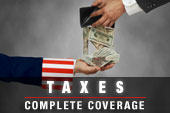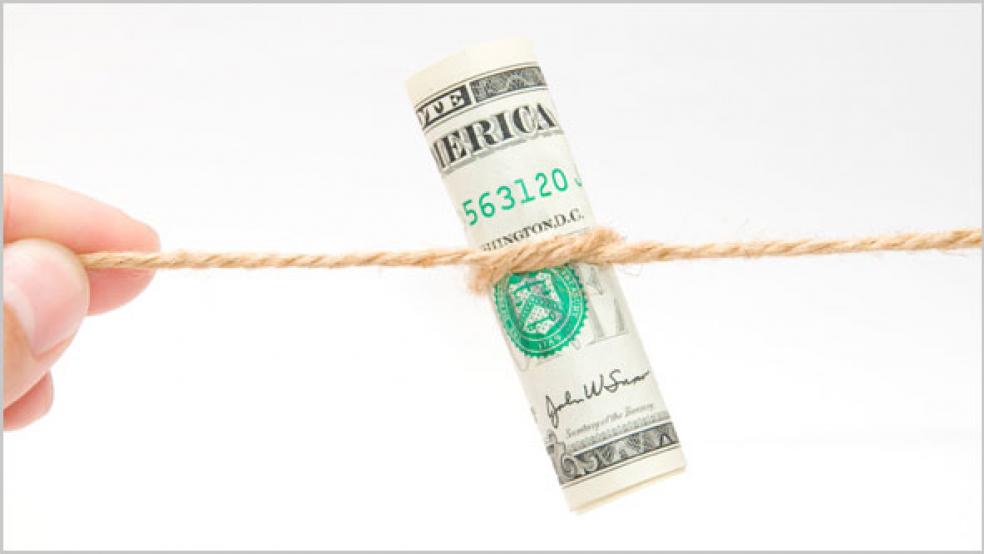The federal government provides a wide array of special exemptions, credits and deductions that amount to more than a $1.1 trillion a year windfall benefitting most Americans. They are designed to reward or encourage certain behavior, such as buying a home, saving for retirement, encouraging employers to provide health insurance, and other goals. Most of them have large built-in constituencies that make them politically difficult to change or eliminate.
Republican presidential nominee Mitt Romney says he would target some of these so-called tax expenditures for elimination to help offset the cost of his proposed across the board tax rate cuts. But neither Romney nor other Republican leaders have specified which of these tax breaks they would be willing to eliminate to advance their plans for major tax reform.

Here is a list of the ten most popular and expensive tax expenditures, along with the Office of Management and Budget estimates of their cost to the Treasury in lost revenues for fiscal 2012:
Top 10 Tax Breaks that Could Be Cut | |||
Deduction | Description | In $Billions | |
Tax-free health insurance contribution | This exclusion for employer-sponsored health insurance and medical care is far and away the most popular and expensive tax expenditure and broadly subsidized the nation’s health insurance system.. Contributions are excluded from the employee’s gross income, while the employer may deduct the cost as a business expense. | $184.4 | |
Mortgage interest deduction | Under this bedrock of the housing industry, the mortgage interest paid by owner-occupants of homes may be claimed as a non-business deduction, up to a limit. But the more expensive the home, the larger the tax benefit. | $98.5 | |
Capital Gains and Dividends | These are profits and gains from financial instruments that are taxed at a 15 percent rate, and go disproportionately to high income households. Three-fourths of the benefit in reduced taxes went to the top 1 percent of U.S. households in 2011. | $77 | |
Tax-free contributions to savings and retirement plans | Federal tax policy encourages long term savings, including the net exclusion of contributions to and earnings of employer-provided and individual pension plans. Those include 401(k) plans, Individual Retirement Accounts (IRAs), the savers’ credit, and Keogh plans. | $67.6 | |
Favorable treatment of capital gains at death | This so-called step-up in basis of capital gains provides a boon to heirs by precluding assets from being taxed on any gains accrued, but not realized, at the death of the owner. In short, heirs escape taxation on the amount that an asset in an estate appreciated from the time it was purchased | $61.5 | |
Exclusion of net imputed rental income | While homeowners obviously don’t have to pay themselves rent, there is an implied rental income benefit of ownership that normally would be considered taxable income. The current law allows an exclusion from taxable income for the implicit gross rental income on housing services. | $50.6 | |
Deductions of state and local property taxes on owner-occupied homes | Homeowners who itemize may deduct the amount of property taxes they paid, while non-itemizers may take a deduction in addition to the standard deduction of $250 for single filers and $500 for joint filers. The biggest beneficiaries are wealthy property owners and residents of high-tax states. | $48.6 | |
Employer Plan Deductions | These apply to employment-based retirement plans, such as defined-benefit plans, other than 401(k)s and IRAs. | $45.2 | |
Charitable contribution deductions | The Internal Revenue Service allows taxpayers to deduct charitable contributions to nonprofit educational institutions, nonprofit health institutions, and organizations Because of the progressivity of the tax system, the deduction is worth more to wealthy taxpayers than to poorer one. | $43.1 | |
Capital gains exclusion on home sales | When you sell your primary residence, you can make up to $250,000 in profit if you're a single owner and twice that if you're married, and not owe any capital gains taxes. | $35.2 | |
| |||





